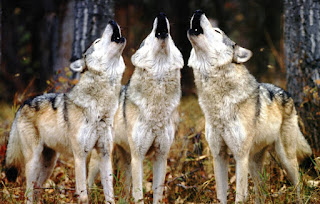Play behaviour - week 9
Why do kittens chase a ball of string? Why do puppies stalk each other? Young animals often play with each other and we probably see this as cute! However, it is thought that behind these play behaviours there are some important reasons and life lessons. Play is a voluntary behaviour and often intrinsically motivated.
Make a prediction. Why do you think kittens stalk pieces of string or each other? It may not be that difficult to work out. But is play advantageous in the wild when it distracts them from predators and expends energy? Some play even hurts animals. Young elephants end up stuck in the mud, young seals end up washed out to sea and when the play is too boisterous, injuries happen. So is play really about learning for the future? Or are there other reasons? Is it simply just fun?
In fact, science hasn't been able to come up with much solid evidence on why animals play. The best guess is that it prepares them for later life, but concrete evidence is yet to be found.
Your task this week is to investigate play behaviours. To do this, answer the following questions in the comments section:
- What's the difference between play and exploring surroundings?
- Why is it thought that parents and offspring play together?
- What is a canine bow? What is the relevance to play?
- Can play behaviour explanations be likened to human behaviour? Why? (No wrong answer so long as you can justify it!)
- What do you think the reason behind play behaviour is? Is there just one reason? (Again, no wrong answer so long as you can justify it!)
Some potentially useful links:




